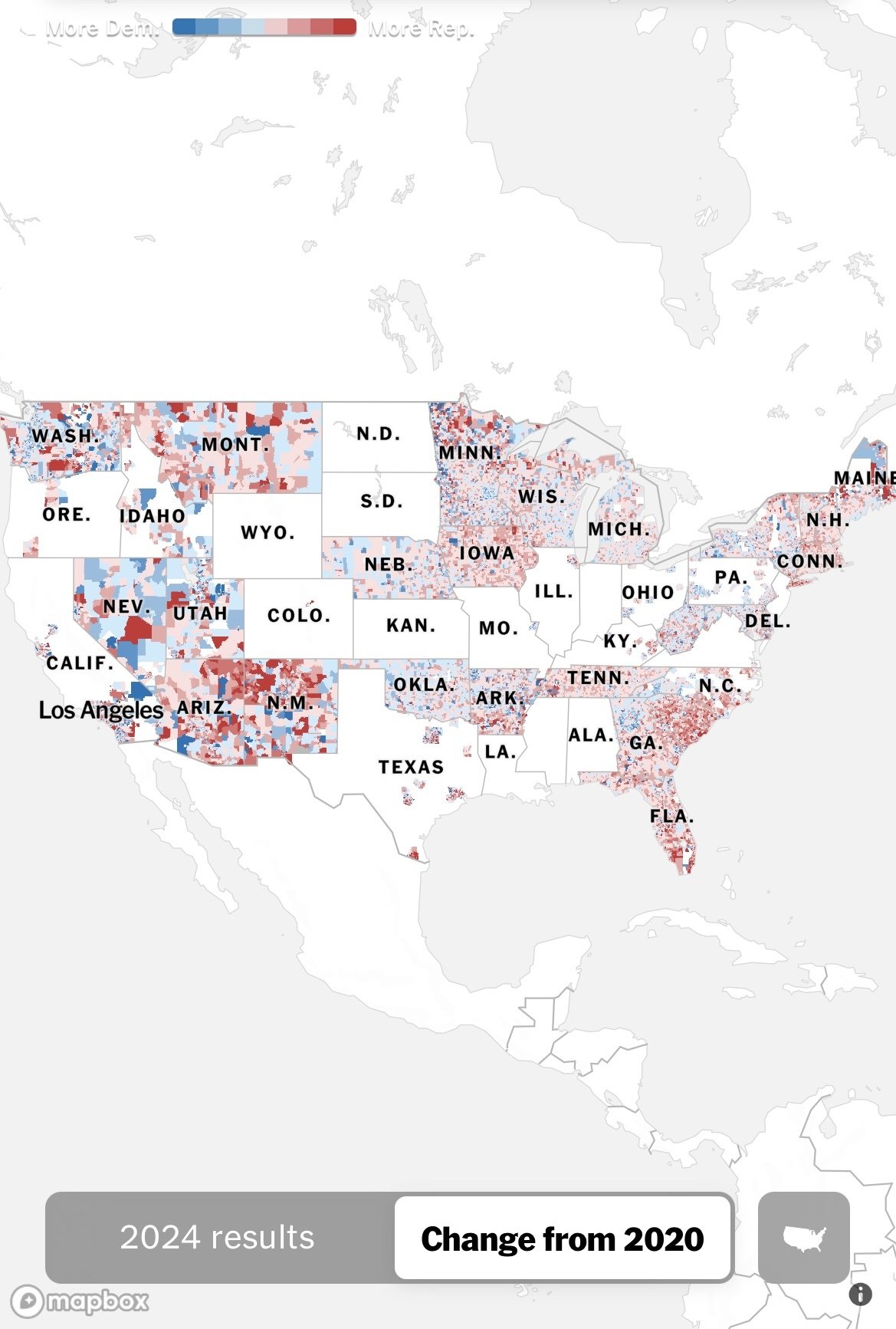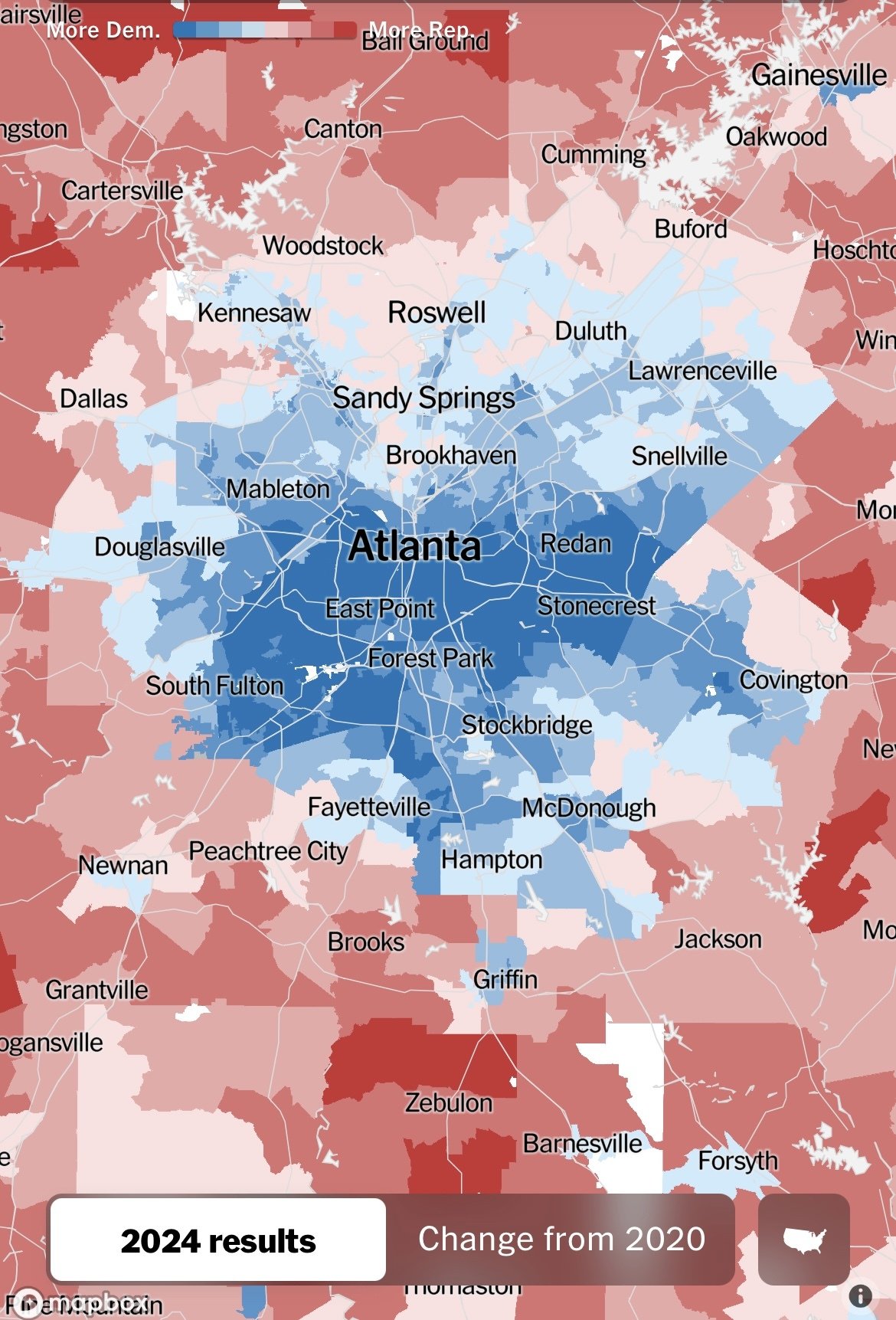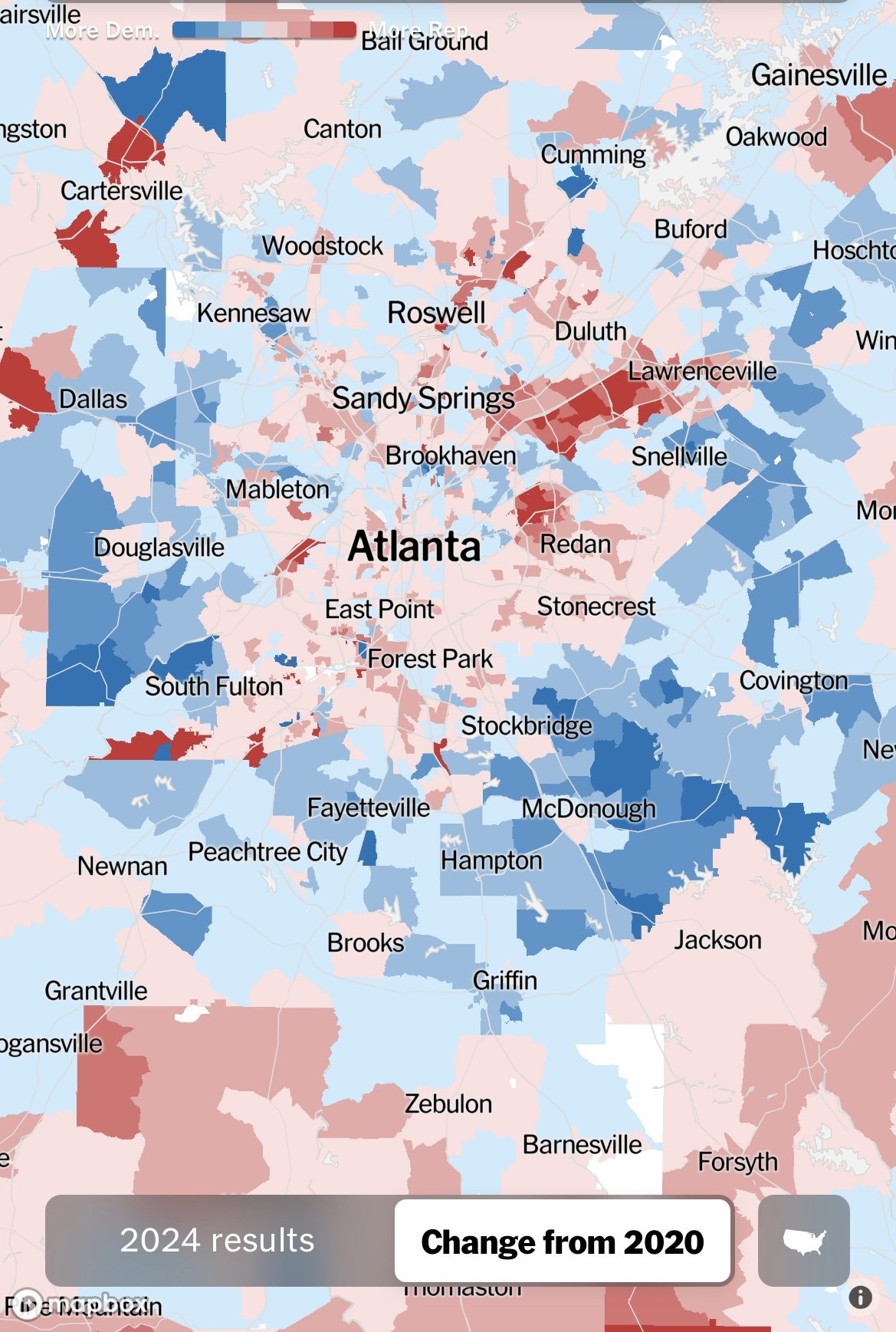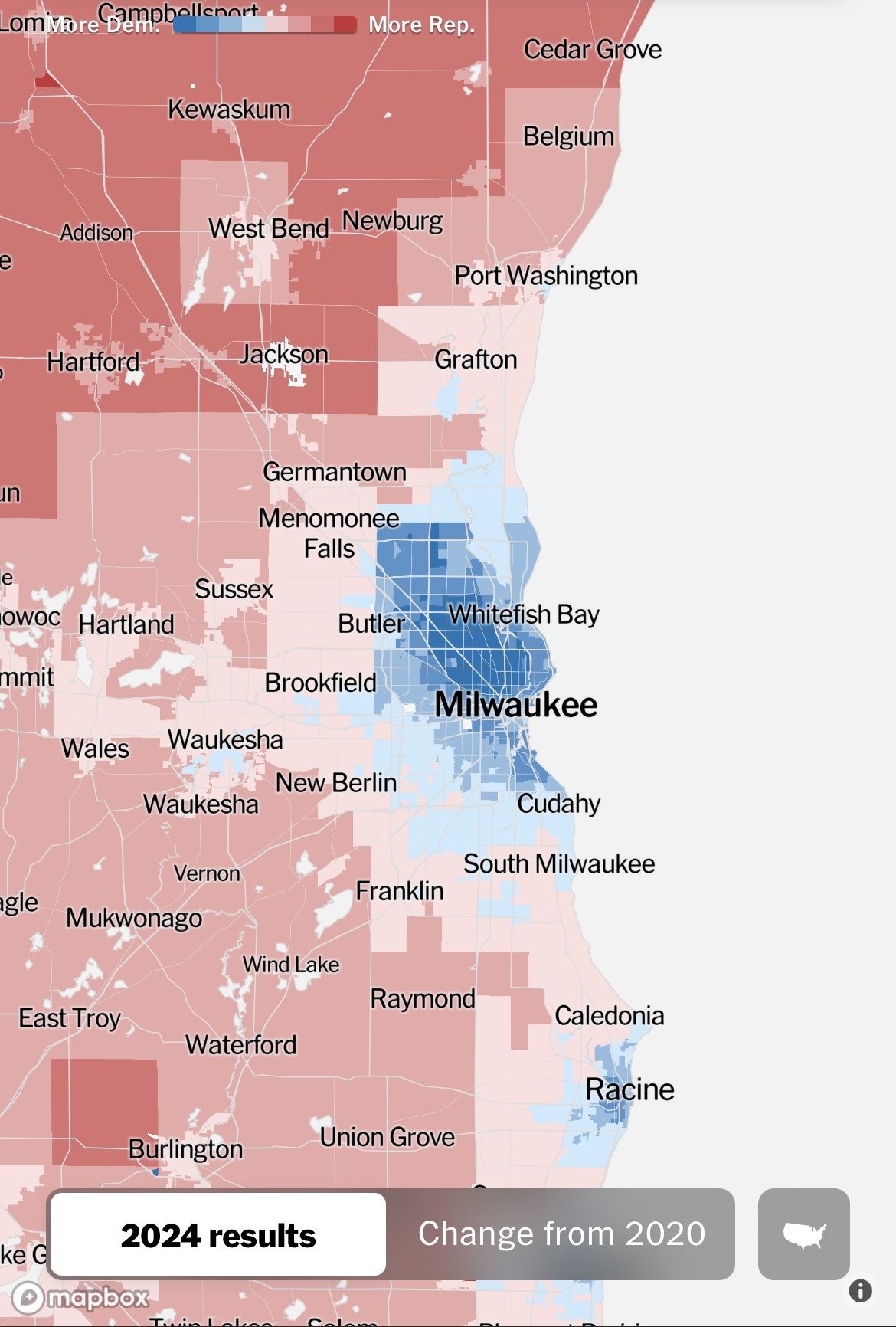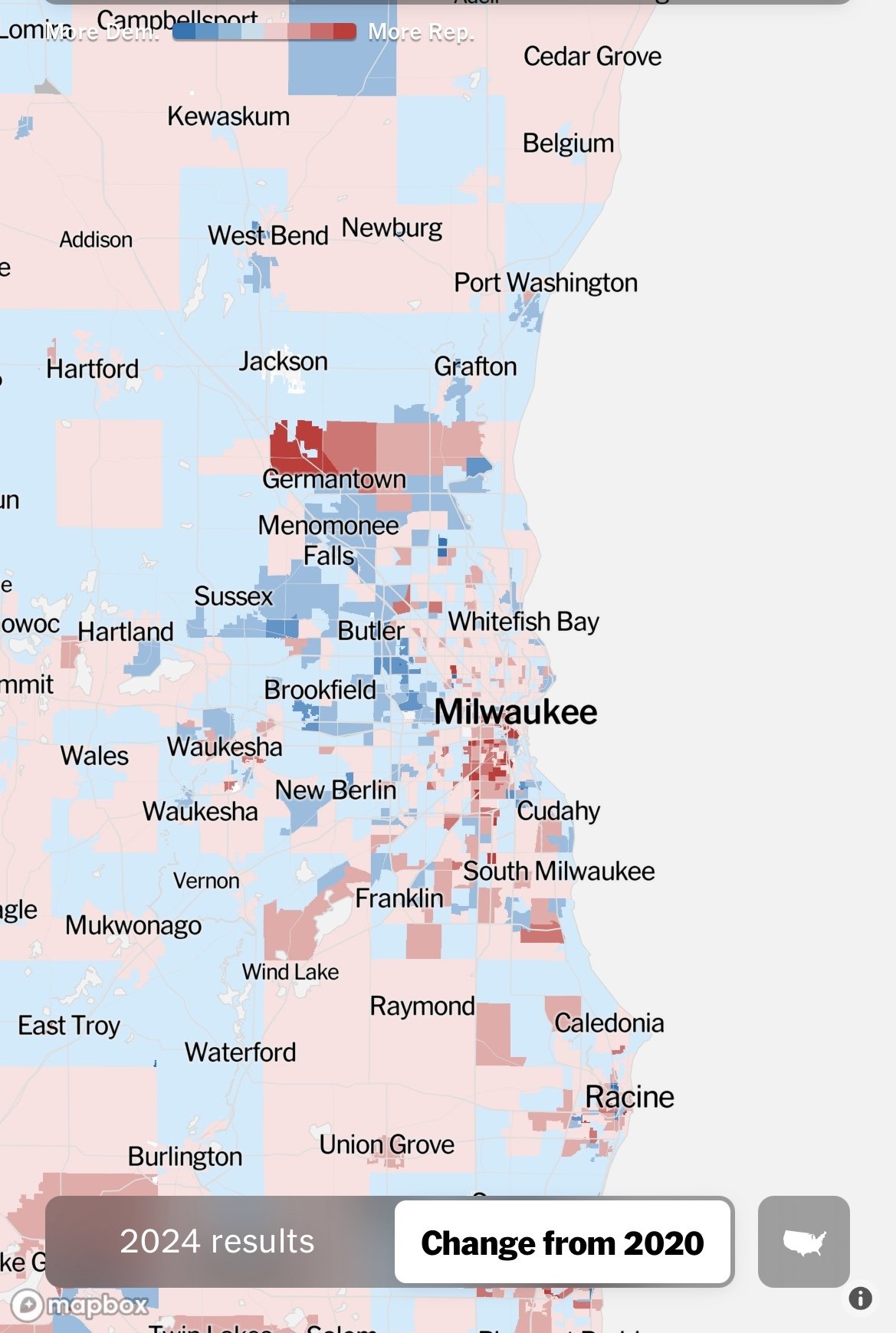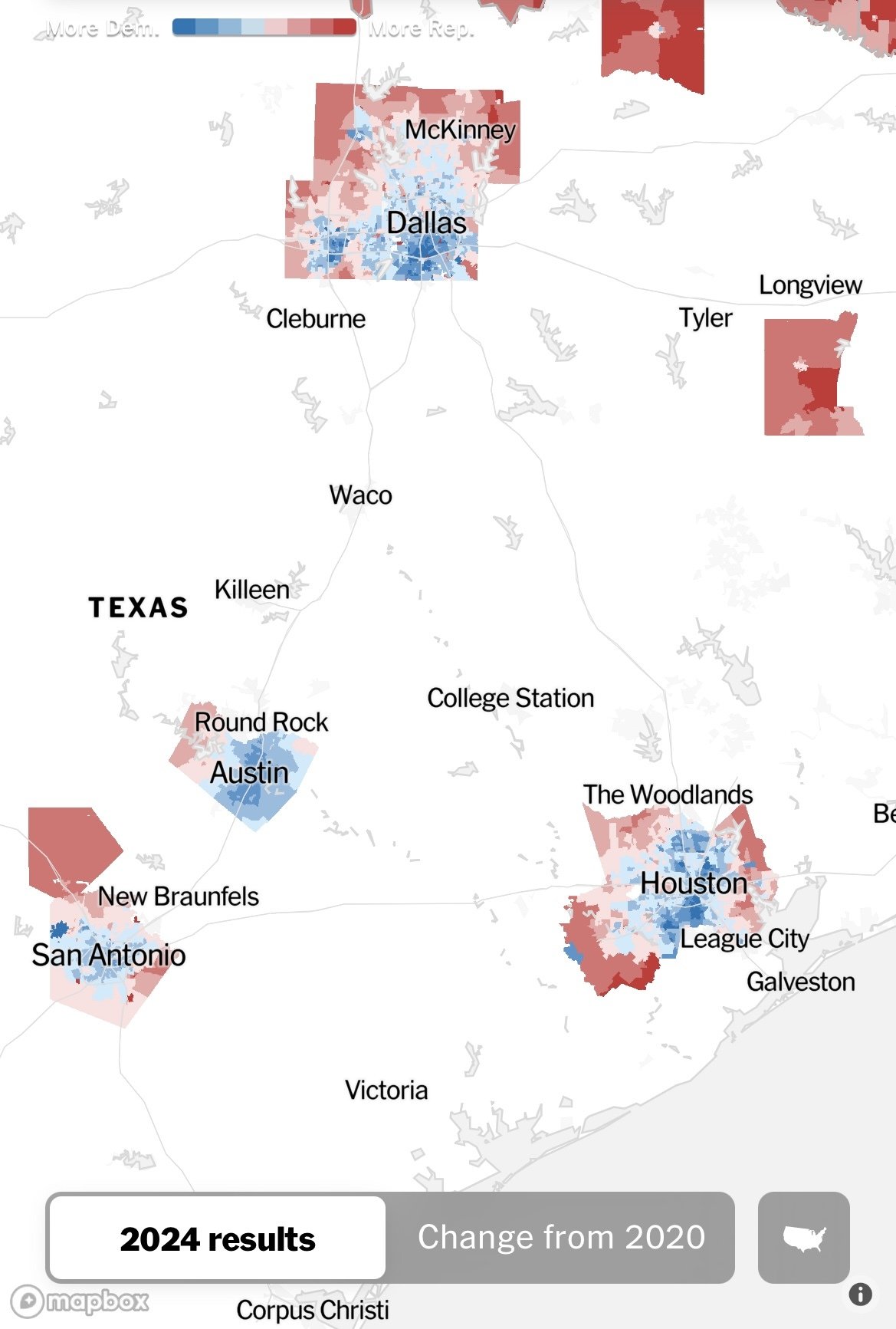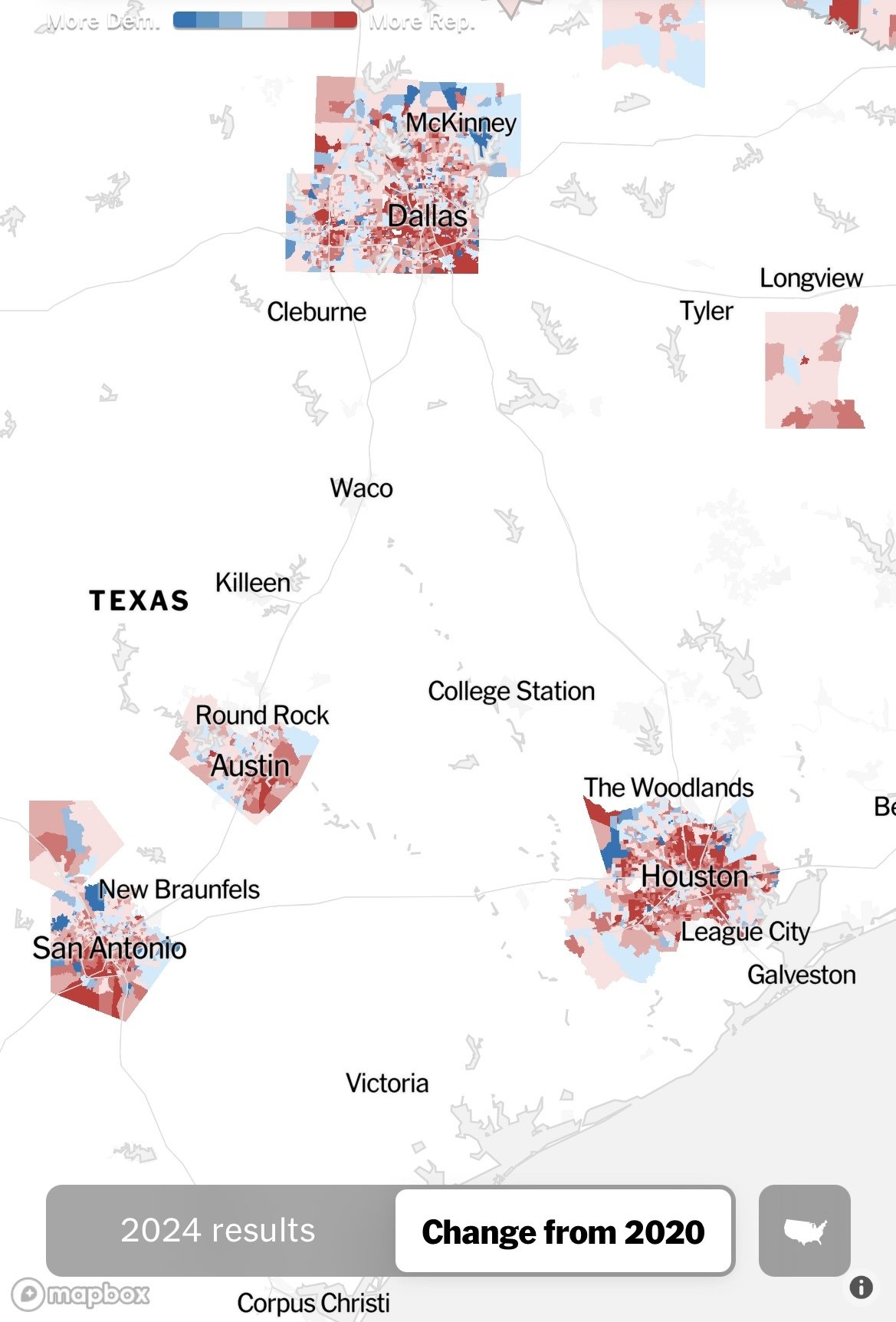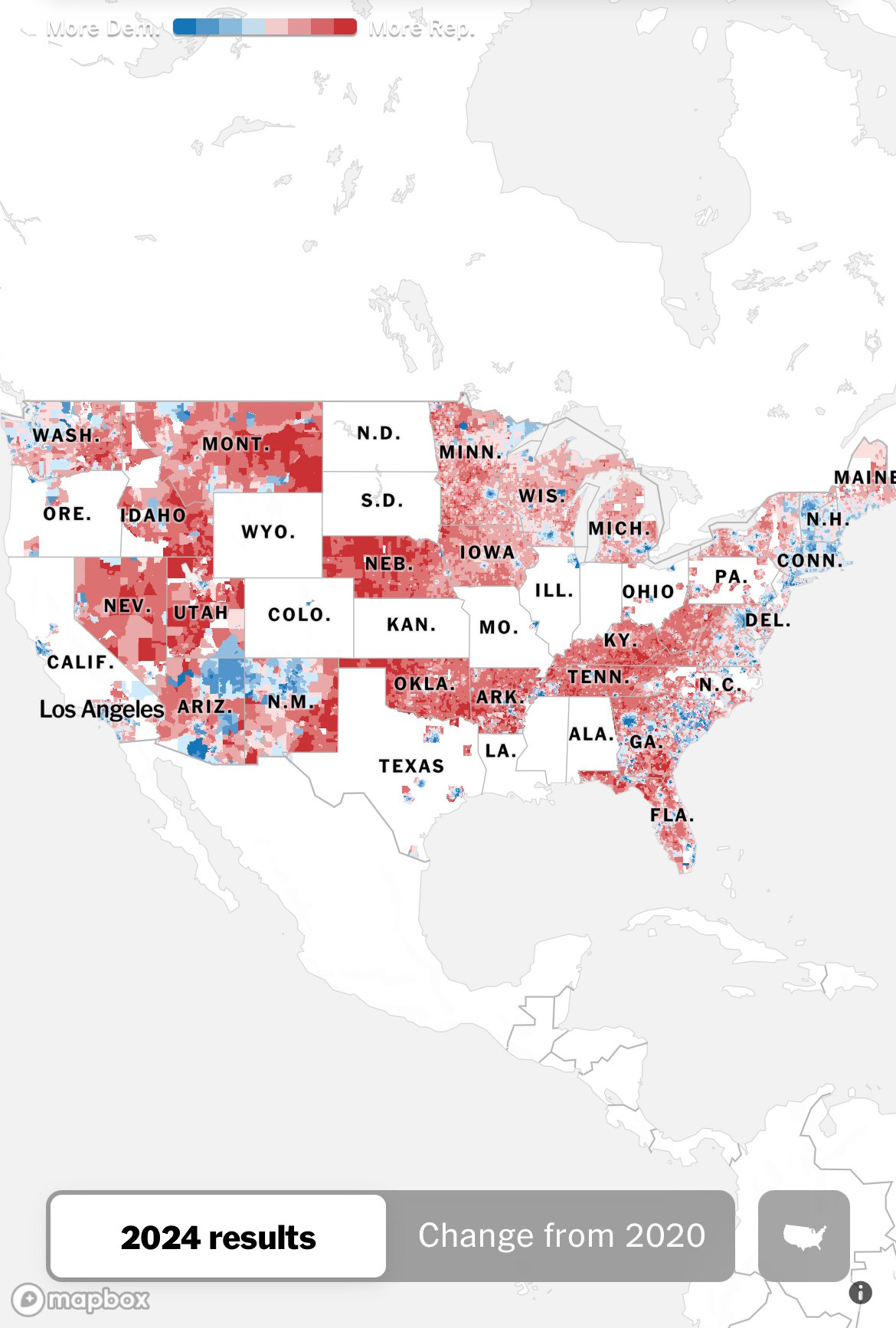Id need actual numbers to make a better guess but I'll say what I’ve been saying. People who've voted blue aren’t necessarily fervent Democrats. Disenfranchisement and propaganda together ended up in them staying home. I know Trump's numbers were close to his 2020 numbers but Harris got ~7 million less than Biden did. Also, when things seem to be declining (real or perceived) it’s hard on the incumbent/ruling party.
AskUSA
About
Community for asking and answering any question related to the life, the people or anything related to the USA. Non-US people are welcome to provide their perspective! Please keep in mind:
- !politicaldiscussion@lemmy.world - politics in our daily lives is inescapable, but please post overtly political things there rather than here
- !flippanarchy@lemmy.dbzer0.com - similarly things with the goal of overt agitation have their place, which is there rather than here
Rules
- Be nice or gtfo
- Discussions of overt political or agitation nature belong elsewhere
- Follow the rules of discuss.online
Sister communities
Related communities
- !asklemmy@lemmy.world
- !asklemmy@sh.itjust.works
- !nostupidquestions@lemmy.world
- !showerthoughts@lemmy.world
I have my own guesses, some of them align with this. Though could anyone expound further?
Not the person you responded to, but some polling indicated that something like 30% of people who didn't vote for Harris, but did vote for Biden, chose not to vote due to the genocide in Gaza. That poll indicates that maybe some of those 30% may still not have voted for other reasons, but it was the main issue polled. https://www.imeupolicyproject.org/postelection-polling
The democrats ran a prosecutor for the party who sports #ACAB stickers. Biden was always a " Not tRump" option. The democratic leadership has been out of touch the same way Republicans were. Now they are MAGA.
One guess could be a latent result of people moving out of the cities as a result of the pandemic. This probably started in 2020, but may have continued since as a result of more remote work possibilities and/or desire to be in less densely populated areas.
As cities traditionally are blue leaning, this would result in democratic proportions in surrounding areas increasing and proportional decrease in cities.
EDIT: I misunderstood the OP to be asking why voters, overall shifted red. My comment below is basically irrelevant to this topic.
Not certain that makes sense, unless people are moving to different states. If people are just moving out of cities, to more rural areas in the same state, then we should see a redder shift of cities AND a blue shift in the more rural areas. The only way your statement can be true is if potential blue voting people from borderline blue, purple states moved to deeply red states. Like this, the purple states become more red, and the red state becomes more blue, but if it was a deeply red state, the amount of people would not have an electoral effect.
I'm leaning more towards less blue voting people voting this election based on the ~7million less votes Kamala got compared to Biden's 2020 number, while trump had about the same number of votes in 2020 and 2024.
If you got any evidence though, i'd be interested in seeing it.
But that's exactly what's being shown in the Atlanta "Changes from 2020" and Milwaukee "Changes from 2020" images posted. I do agree blue voter turnout was overall less for whatever reason, but I'm not sure that would explain those results.
That’s exactly what’s shown in the post.
Sorry you're right, my mistake. I misunderstood the topic.
Are these maps on a website ? I want to compare with 2020 more in different cities
DNC wanted Trump/Netanyahu to win. Stacey Abrahms in Atlanta was not paid to get the turnout she did in 2020 including 2 senate races.
